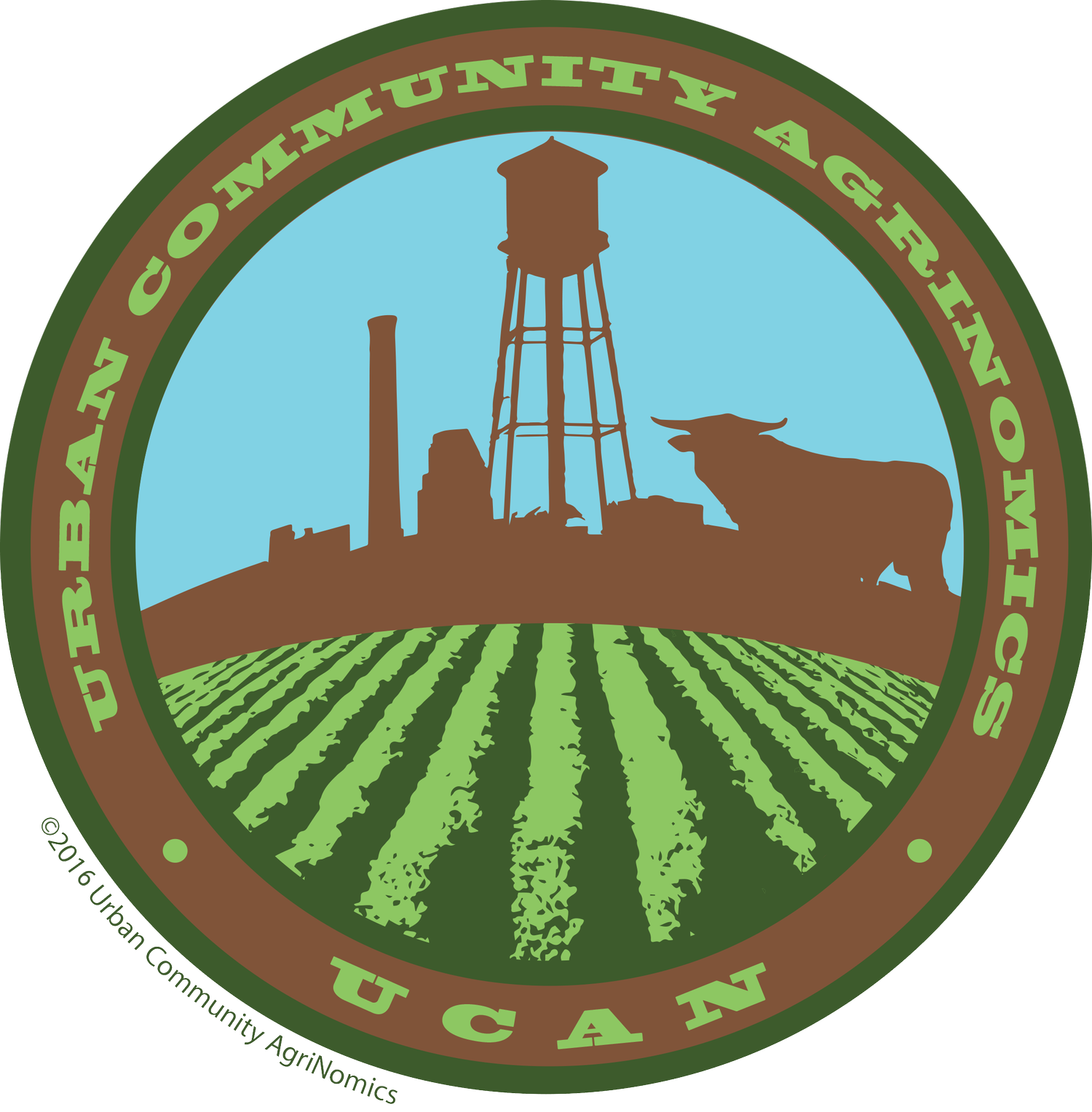Revolution Through The Land And In Ourselves
June 22nd, 2020
Written By: Stacia Turner
During times of uncertainty like the current state of our world, the most promising strides towards sustainable adaptation lie in innovative solutions for simultaneously building self-sufficiency and impactful community interdependence. When public sanctioned institutions such as schools and hospitals are challenged by the weight of mass crises, organizations such as Urban Community AgriNomics (UCAN) serve as a beacon of hope and resilience. The bright side of the challenging times that we are experiencing, is that the weaknesses in our systems are being exposed. While painful, the exposed flaws in our system allow us a fresh chance to reevaluate the sustainability of our social safety nets and public institutions so that we can reemerge with more sustainable solutions to public resource sharing, education, and public health. Organizations like UCAN that focus on equipping underserved communities with land stewardship skills, nutrition, and gardening skills that are often denied them, are the crux of building a sustainable future. UCAN is founded by Black women with a long lineage of agrarian expertise and life-long skills in food preservation and affordable nutrition planning that are fundamental to empowering working-class and low-wealth communities reclaiming independence in times of scarcity and uncertainty. Furthermore, as UCAN is growing and developing as an organization, community in-put about what skill-sets and resources are the most pressing, allows the organization to adapt to meet the most pressing needs of the community that will be the most impactful. As the old saying goes, “closed mouths don’t get fed”, so if there is a skill-set that you’ve been wanting to learn such as growing mushrooms, learning carpentry or bee-keeping etc, Catawba Trial farms can act as an incubator for your budding curiosity in developing new skill-sets that benefit both yourself and the community.
The extended period of quarantine and social-distancing that we have experienced has underscored the innate desire in all of us to value the importance of access to fresh air and experiences in the natural world. UCAN’s Catawba Trail Farm provides the community with a 53 acre landscape with trails, garden plots, and woods to explore, allowing folks an opportunity to rekindle a relationship with the local landscape and natural resources of Durham. With enough space to social distance and afforded opportunities to exercise pent-up energy through physical labor work on the farm, or a peaceful walk through the woods, the farm is an invaluable community resource in times of crisis. Numerous studies prove the therapeutic value of time spent outdoors and particularly in landscapes that are removed from the noise and distractions of the Urban bustle. Catawba Trail Farms is a hidden gem nestled at the edge of Durham, close enough for a short-drive but removed enough from the urban center to provide an escape from the chaos of the city. Protecting and investing in community lands like Catawba Trail farms are the types of resources that serve as points of refuge and hope in a world that seems to be inundated with chaos and ever-changing traumatic circumstances. With beehives, community garden plots, and wild growing wooded lands, Catawba Trail farms offer a wealth of opportunities for community members to find respite through mediation on the land that sustains us all.
Supporting the growth and development of UCAN with your volunteer labor and distributing information about the services they provide is an investment in democratizing access to sustainable food production and skill sets among Durham community members that need it the most. UCAN is striving towards building out Catawba Trail Farm as an educational hub with a diverse set of opportunities for community members to learn and grow through collectively rebuilding; physically rebuilding the structures on the land, and conceptually rebuilding the know-how to cultivate, preserve, and prepare nutritious foods and empower ourselves with the confidence to believe that we can rebuild ourselves and our autonomy through hard work and self-determination. Many of the skills that UCAN provides to the community were once common-place in a recent past of a Yeoman dominant American society, but as culture shifted from the farm to the city, a lot of the basic skills that once collectively sustained us with supplemental food and herbal medicine resources have been long forgotten. While we are all being impacted by social movements and civil unrest as well as global pandemic, the time is ripe for integrating innovative ways to communicate, community organize, and relearn the fundamentals of sustainable self-sufficiency. Black communities are tied to a legacy of agriculture in America, and Durham is rife with lingering stains of a painful history of racial injustice but now is the time to reclaim sustainable cultivation skills as a resource of empowerment rather than servitude. Revolution and progress doesn’t just take place by marching in the streets, it also takes places within ourselves through learning what self determination and maximum autonomy looks like for us individually and collectively. UCAN can assist the Durham community in the radical journey for independence through community interdependence and investment. If you find yourself looking for ways to add to the movement for social justice and equity in our society, consider supporting local Black-led producers, land stewards, and agricultural educators like UCAN. You can add your support in a myriad of ways including making financial contributions and corporate sponsorships, volunteering your time and labor on the farm or in other functions of the organization, and most simply, by spreading the word about the services and opportunities that UCAN offers. By supporting UCAN through direct actions, we can put our values of social equity and fair resource distribution into practice.



